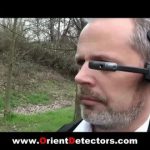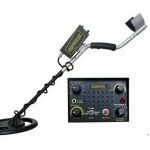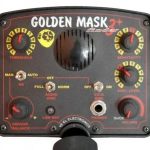Detector metal technology has reached a new level of innovation with the latest advancements in metal detector technology. These new developments are revolutionizing the fields of security and exploration, offering unprecedented capabilities for detecting and identifying metal objects. From enhanced sensitivity and precision to advanced imaging and data processing, the new metal detector technology is opening up new possibilities for keeping people safe and uncovering hidden treasures. In this article, we will explore the latest breakthroughs in metal detector technology and examine their potential impact on security and exploration.
New metal detector technology is revolutionizing the fields of security and exploration by offering advanced features and capabilities. These modern metal detectors are equipped with enhanced sensitivity and accuracy, enabling them to detect even the smallest metal objects and provide precise results.
Furthermore, new metal detector technology incorporates innovative features such as multiple targeting modes, advanced signal processing, and customizable settings, allowing users to optimize the detection process for their specific needs. Additionally, the use of cutting-edge materials and components has resulted in lighter and more ergonomic designs, making these detectors easier and more comfortable to use for extended periods.
In the field of security, these advancements in metal detector technology have improved the ability to identify concealed weapons and other metal objects, thereby enhancing public safety and security in various settings such as airports, schools, and public events. Meanwhile, in the realm of exploration, the new technology has enabled more accurate and efficient detection of buried artifacts, treasures, and geological resources, leading to significant advancements in archaeological, mining, and geological surveying endeavors.
Overall, the new metal detector technology is poised to redefine the capabilities and applications of metal detection, offering enhanced performance, functionality, and usability for security and exploration purposes.
The Basics of Metal Detector Technology
Metal detector technology utilizes electromagnetic fields to detect the presence of metal objects. When a metal object comes into the range of the electromagnetic field, it disrupts the field and triggers an alert. There are different types of metal detectors, including pulse induction and very low frequency detectors. Additionally, modern metal detectors often use advanced signal processing algorithms to differentiate between different types of metals and reduce false positives. Metal detectors are used in a wide range of applications, including security screening, archaeological surveys, and industrial metal detection.
Top Tips for Using a Metal Detector
Here are some top tips for using a metal detector:
1. Familiarize yourself with your metal detector’s settings and controls before you start using it. Understanding how to adjust sensitivity, discrimination, and ground balance will help you maximize your success.
2. Research and choose the right location to use your metal detector. Look for areas with a history of human activity, such as beaches, parks, or old homesteads.
3. Learn how to properly swing your metal detector to cover the most ground efficiently. Keep the coil close to the ground and move it in a slow, controlled manner.
4. Use headphones when detecting to block out background noise and hear faint signals more clearly. This will also prevent disturbing others in public areas.
5. Always carry a recovery tool, such as a hand trowel or digging knife, to safely and responsibly retrieve targets without causing damage to the environment.
6. Practice good etiquette by filling in any holes you dig and disposing of any trash you find. Leave the area in the same or better condition than you found it.
7. Research local laws and regulations regarding metal detecting in your area. Some places may have restrictions on where and when you can use a metal detector.
By following these top tips, you can enhance your metal detecting experience and increase your chances of finding valuable items.
The Science Behind Metal Detection Systems
Metal detection systems work on the principle of electromagnetic induction. When a metal object passes through the detector, it disrupts the magnetic field generated by the system. This disruption is then detected by the system’s receiver, which triggers an alarm or signal to indicate the presence of metal.
The sensitivity of metal detection systems is determined by factors such as the size and shape of the metal object, as well as the composition of the material. Advanced systems can distinguish between different types of metals and ignore non-metallic objects, reducing false alarms and increasing efficiency.
Metal detection systems are used in various industries, including food processing, manufacturing, security, and mining. They play a crucial role in ensuring product safety, preventing equipment damage, and enhancing security measures.
Overall, the science behind metal detection systems involves the use of electromagnetic principles to detect and identify metal objects, making them essential tools in numerous applications.
Choosing the Right Metal Detector for Your Needs
Choosing the right metal detector for your needs depends on a few key factors. Firstly, consider where you’ll be using it. If you’re primarily detecting at the beach, you’ll want a waterproof model. If you’ll be detecting in highly mineralized soil, you’ll need a detector with good ground balancing capabilities.
Another important consideration is the type of targets you’ll be searching for. Different detectors are optimized for different types of metal, so think about whether you’ll be looking for coins, relics, gold nuggets, or something else.
You’ll also want to think about the weight and ergonomics of the detector, especially if you’ll be using it for long periods of time. Look for a model that is comfortable to hold and easy to swing.
Finally, consider your budget. There are metal detectors available at a wide range of price points, so think about how much you’re willing to spend and what features are most important to you. By carefully considering these factors, you can choose the right metal detector for your particular needs.
Common Misconceptions About Metal Detectors
– One common misconception about metal detectors is that they can detect specific types of metal, such as gold or silver, more effectively than others. In reality, most metal detectors are designed to detect all types of metal equally, and cannot differentiate between different types.
– Another misconception is that metal detectors can accurately determine the depth at which a metal object is buried. While some high-end detectors may provide a rough estimation of depth, this is often not very reliable and can vary depending on factors such as soil composition and the size of the object.
– Some people also believe that metal detectors can pick up objects buried very deep underground. In truth, most consumer-grade metal detectors are only capable of detecting objects at a depth of a few inches to a few feet, depending on the size and composition of the object.
– Lastly, there is a belief that metal detectors can discriminate between valuable and non-valuable items. While some detectors have discrimination features to filter out certain types of metal, this is not foolproof and can often result in valuable items being overlooked. It’s important to note that all metal detectors have limitations and are not a guaranteed way to find hidden treasures.
Exploring the History of Metal Detection
The history of metal detection dates back to ancient times, with references to rudimentary metal detectors being used as far back as 3500-3000 BCE in Egypt. These early devices were simple rods or wands that were believed to have been used to detect metal in the ground.
Metal detection technology continued to evolve over the centuries, with significant advancements being made during the 19th and 20th centuries. In the 1800s, developments in electromagnetic theory and technology led to the creation of more sophisticated metal detectors. During World War II, metal detectors were used for military purposes, such as locating landmines and unexploded ordnance.
In the post-war years, metal detectors became more widely available for civilian use, and their applications extended beyond military and industrial use to include recreational metal detecting. Today, metal detection technology continues to advance, with modern metal detectors utilizing advanced electromagnetic principles and signal processing techniques to accurately detect and discriminate between different types of metals.
The history of metal detection is a fascinating exploration of the intersection of science, technology, and human ingenuity. From its humble beginnings in ancient Egypt to its wide-ranging applications in the modern world, the development of metal detection technology has been a testament to the enduring human drive to explore and understand the world around us.
How to Properly Maintain Your Metal Detector
See also: diamond detector
To properly maintain your metal detector, it is important to regularly clean and inspect it for any damage or wear. Clean the coil and shaft of the detector with a soft, dry cloth to remove any dirt or debris. Check the wiring and connections for any signs of damage and ensure that they are secure. Keep the control box and display dry and free from moisture, and store the detector in a cool, dry place when not in use. Additionally, be sure to follow the manufacturer’s guidelines for battery maintenance and replacement. By regularly cleaning and inspecting your metal detector, you can help ensure its optimal performance and longevity.
Understanding the Different Types of Metal Detectors
Metal detectors come in various types and are designed for different purposes. The main categories are VLF (Very Low Frequency), PI (Pulse Induction), and Beat Frequency Oscillation (BFO) detectors. VLF detectors are popular among hobbyists and are suitable for detecting a wide range of metal objects in different ground conditions. PI detectors are often used in more advanced applications and can detect metals at greater depths, making them popular for treasure hunting and archaeological use. BFO detectors are the simplest and most affordable type, but they are less effective in highly mineralized soil. Understanding the strengths and limitations of each type of metal detector can be helpful in choosing the right one for your specific needs.
The Pros and Cons of Using Metal Detectors
Pros of using metal detectors:
1. They can help locate lost or buried metal items such as jewelry, coins, or tools.
2. Metal detectors can be used for security purposes in public places such as airports or schools to detect potential weapons.
3. They are an effective tool for archaeological purposes, helping to uncover buried artifacts and historical items.
Cons of using metal detectors:
1. They can be unreliable and give false readings, leading to wasted time and effort.
2. Metal detectors may not be able to detect non-metallic objects, limiting their usefulness in some situations.
3. In public settings, metal detectors can create a sense of mistrust and unease, and may infringe on personal privacy.
Metal Detector Laws and Regulations Around the World
Metal detector laws and regulations vary widely around the world. In some countries, the use of metal detectors is banned or heavily regulated in order to protect archaeological sites and cultural heritage. In other countries, metal detecting is allowed with certain restrictions, such as obtaining permits or permission from landowners. It is important for metal detectorists to research and understand the specific laws and regulations in their location before using a metal detector. Failure to comply with these laws can result in fines, confiscation of equipment, and legal consequences. Additionally, ethical metal detecting practices, such as filling in holes and properly disposing of any trash found, are important to preserve the environment and maintain positive relationships with landowners and authorities.
In conclusion, the new metal detector technology is revolutionizing both security and exploration. With its advanced capabilities, it is enhancing the ability to detect metal in various environments and improving overall safety measures. This innovative technology is poised to have a major impact on multiple industries, from law enforcement and border security to archaeological exploration and mining operations. The potential for detecting metal with greater accuracy and efficiency is promising, and it is likely to shape the future of security and exploration for years to come.
See also









